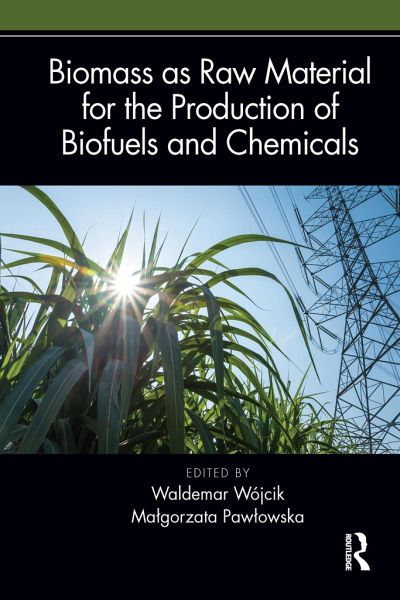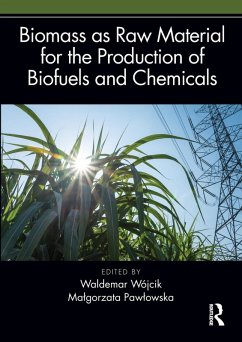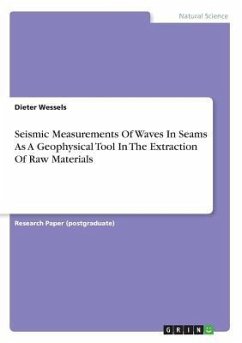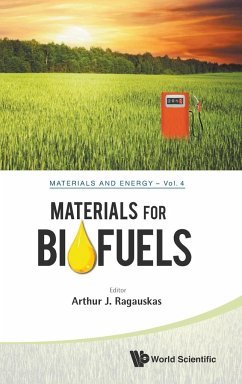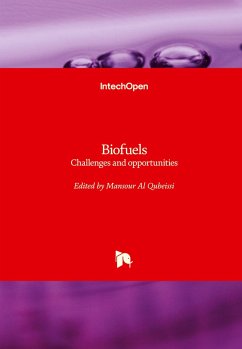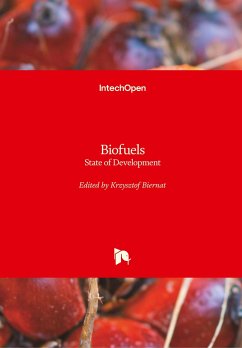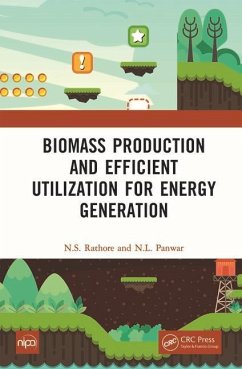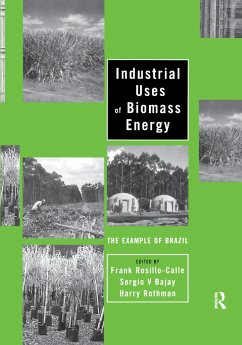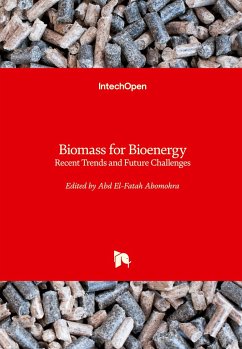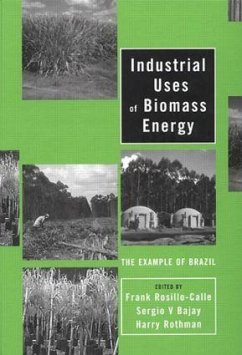Gebundenes Buch
Biomass as Raw Material for the Production of Biofuels and Chemicals
Versandkostenfrei!
Versandfertig in 1-2 Wochen
Weitere Ausgaben:

PAYBACK Punkte
75 °P sammeln!




This book discusses biomass as a raw material for the production of liquid or gaseous biofuels and valuable chemicals. The authors show how its volume and composition can be predicted, by which form of processing it can be converted into valuable products, as well as in which ways its negative environmental impact can be limited.
Waldemar Wójcik, was born in Poland, 1949. He is Director of the Institute of Electronics and Information Technology, former long-time dean of the Faculty of Electrical Engineering and Computer Science at Lublin University of Technology, Doctor Honoris Causa of five universities in Ukraine and Kazakhstan. He obtained his Ph. D. in 1985 at the Lublin University of Technology, and D. Sc. in 2002 at the National University Lviv Polytechnic, Ukraine. In 2009 he obtained a title of professor granted by the President of Poland. In his research he mainly deals with process control, optoelectronics, digital data analysis and also heat processes or solid state physics. He pays particular attention to the use optoelectronic technology in the monitoring and diagnostics of thermal processes. He is a member of Optoelectronics Section of the Committee of Electronics and Telecommunications of the Polish Academy of Sciences; Metrology Section of the Committee of Metrology and Scientific Equipment of the Polish Academy of Sciences. He is also a member of European Academy of Science and Arts (Austria); Academy of Applied Radioelectronics of Russia, Ukraine and Belarus; The International Informatization Academy of Kazakhstan and many other scientific organisations of Poland as well as Europe and Asia. In total, he has published 56 books, over 400 papers, and authored several patents. He is also a member of the editorial board of numerous international and national scientific and technical journals. Mägorzata Paw¿owska Ph.D. is a researcher and lecturer at the Faculty of Environmental Engineering of Lublin University of Technology. In the years 2013-2019 she was the head of the Department of Alternative Fuels Engineering at the Institute of Renewable Energy Sources Engineering. Currently, she heads the Department of Biomass and Waste Conversion into Biofuels. She received her M.Sc. of the philosophy of nature and the protection of the environment at the Catholic University of Lublin in 1993. In 1999, she received Ph.D. in agrophysics at the Institute of Agrophysics of the Polish Academy of Sciences, and in 2010 she obtained a postdoctoral degree in the technical sciences in the field of environmental engineering at the Wroc¿aw University of Technology. In 2018, she was awarded the title of professor of technical sciences. Her scientific interests focus mainly on the issues related to the reduction the greenhouse gases concentrations in the atmosphere, energy recovery of organic waste, and the possibility of using the waste from the energy sector in the reclamation of degraded land. A measurable outcomes of her research is the authorship or co-authorship of 105 papers, including 40 articles in scientific journals, 4 monographs, 24 chapters in monographs, co-edition of 5 monographs, co-authorship of 15 patents and dozens of patent applications. She has participated in the implementation of 9 research projects concerning, first of all, the prevention of pollutant emissions from landfills and the implementation of sustainable waste management.
Produktdetails
- Verlag: Routledge
- Seitenzahl: 242
- Erscheinungstermin: 1. November 2021
- Englisch
- Abmessung: 250mm x 175mm x 18mm
- Gewicht: 604g
- ISBN-13: 9781032011585
- ISBN-10: 1032011580
- Artikelnr.: 62276459
Herstellerkennzeichnung
Libri GmbH
Europaallee 1
36244 Bad Hersfeld
gpsr@libri.de
Für dieses Produkt wurde noch keine Bewertung abgegeben. Wir würden uns sehr freuen, wenn du die erste Bewertung schreibst!
Eine Bewertung schreiben
Eine Bewertung schreiben
Andere Kunden interessierten sich für



